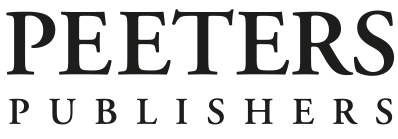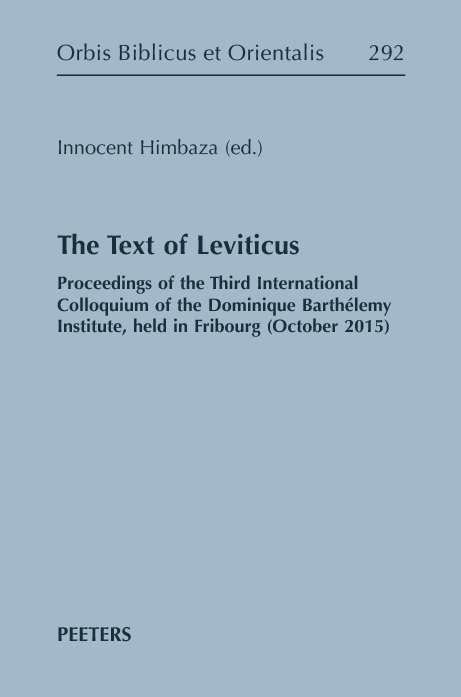The book of Leviticus is by far the most quoted in rabbinic literature
such as the Mishna or the Talmud, while it has been marginalized in the
Christian tradition. Nevertheless, scholars of both traditions have again
become highly interested in it for some decades now. As shown by many
recent publications, the book is thoroughly studied for textual, literary,
historical and reception aspects.
It has often been said and written
that the text of Leviticus is stable in comparison to many other books of
the Hebrew Bible, and that its Greek translation is quite literal. Yet,
the text of Leviticus continues to raise questions, not only regarding its
content and textual witnesses, but also its interpretation, history and
reception. The third international colloquium of the Dominique Barthélemy
Institute, held in Fribourg in October 2015, aimed to bring together some
specialists of the text of Leviticus in order to advance research on its
textual witnesses and the aforementioned topics.
The articles
collected in this book reflect the width of current research. They deal
with the witnesses to the text of Leviticus in the Dead Sea Scrolls, the
Masoretic Text, the Samaritan Pentateuch and the Septuagint. They also
study the book’s Hebrew editing; its relation to other books such as
Joshua, Luke-Acts and Flavius Josephus; and the challenge of its
translation, with a case study in French.
Le livre du Lévitique est de loin le plus cité dans la littérature
juive, notamment la Mishna ou le Talmud, alors qu’il a été marginalisé
dans la tradition chrétienne. Néanmoins, depuis quelques décennies, les
chercheurs des deux bords se sont intéressés à ce livre. De nombreuses
publications récentes montrent qu’il est étudié dans tous ses aspects
textuels, littéraires, historique et dans sa réception.
On a souvent
affirmé que le texte du Lévitique est plus stable que celui de beaucoup
d’autres livres de la Bible hébraïque, que sa traduction grecque est
littérale, etc. Pourtant, ce texte continue de soulever des questions, non
seulement en ce qui concerne ses témoins textuels, mais aussi son
interprétation, son histoire et sa réception. Tenu à Fribourg en Octobre
2015, le troisième colloque international de l’Institut Dominique
Barthélemy entendait rassembler quelques spécialistes du texte du
Lévitique pour avancer dans la recherche sur ces différents sujets.
Les études rassemblées dans ce volume reflètent le vaste champ de
recherche sur ce livre biblique. Elles touchent à la manière dont le
Lévitique apparaît dans les témoins textuels, notamment les manuscrits de
la Mer Morte, le Texte Massorétique, le Pentateuque Samaritain et la
Septante. Elles abordent également les défis de son édition hébraïque, ses
relations avec d’autres livres comme Josué, Luc-Actes et Flavius Josèphe
et enfin les enjeux de sa traduction française.
This book is published open access.
It can be downloaded
here.


 0
EN
0
EN




